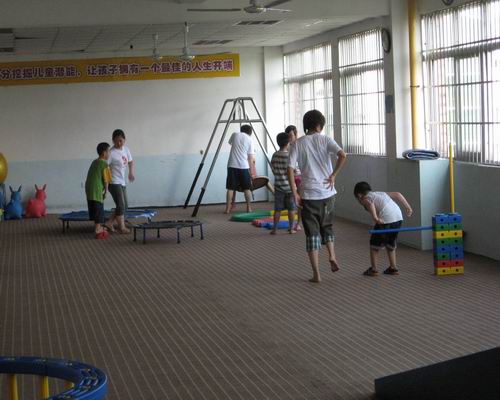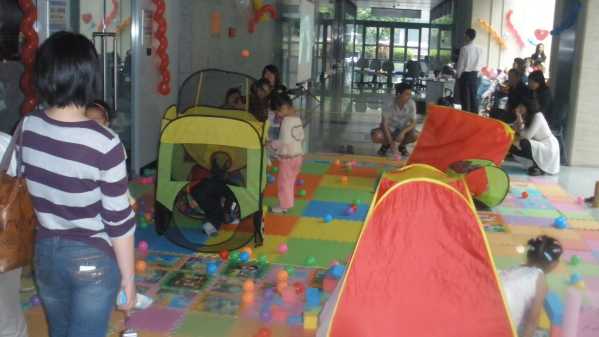Lawson, W. (2001). Understanding and Working With the spectrum of Autism. London : Jessica Kingsley
认知方式
1. Literality
As individuals with ASD, we may experience extreme levels of anxiety; therefore, structured strategies to cope with changes are essential.
(When the person with ASD was interrupted in her processing time and ‘lost’ in her train of thought, she will hold on to what she has to think out what she needs to do next.)
思维方式刻板
我们常有很大的焦虑感,所以一些清晰的策略来帮助我们适应改变是必须的。
(当自闭症人士的思考遭到干扰而感到混乱时 她会死抓她已有的东西来想下一步该干什么。)
2. Monotropism
It refers to the ability to focus in on one aspect of communication, or upon one interest at one time. It means difficulties coping with ‘change’ in routine, expectation, instruction, daily schedule, movement of attention and even incorporating another channel into the present scenario.
(People who are concerned with individuals with autism get used to their occasional very emotional outbursts in response to seemingly minor events. I believe these are a consequence of the great intensity of sensation caused by their superfocussed attention, and the abruptness with which they can experience changes of focus. (Murray 1997)
单信道反应
它指在一个时间内,只能接收一项讯息或将注意力放在某一件事物上。因此我们难以接受种种惯例、日常程序、指令、预期方面的改变,也不容易转移注意力,即使想在目前的场景内容纳多一种接收信道也并不容易。
(经常接近自闭症人士的人,会逐渐习惯他们偶有因小事而大发脾气的情形。我相信这是源自他们的注意力经常过度集中而积聚的一些强烈情绪,和他们在注意力转移时所感到的猝然感,两者一起造成的后果。)
3. Thinking in closed pictures
For many individuals with ASD every situation that we encounter is like encountering it for the first time. As individuals with autism we often need intention, context and scale explained to us. However, many of us can learn to generalize by academically learning the rules for each situation independently.
单一图画式思考方式
每一个场合,对我们都像是全新似的。我们很需要别人向我们解释这情景的目的、重要性和包含的意义。我们大都可以像读书般学晓个别情景的规则,并将之类化至其它场合。
4. Non-social priorities
There was a time when I didn’t talk. Not because I couldn’t, but I thought everyone knew what I wanted already, there was no need to tell them.
离群的僻性
有时我并不说话,不是我不能,而是我以为人人已知道我要什么,再没有需要告诉别人。
5. Issues with time
Sometimes events that are stored in my long-term memory present not as parts of the past but as very present issues. Time, therefore, appears to always be in the present. Concepts of the future are very difficult to imagine.
对时间的理解
有时候,我储存在长期记忆中的事,不像是从前发生而似是刚发生不久,时间好像永远只有目前,「将来」这概念对我们来说很难想象。
6. Issues with predicting outcomes
The inability to predict an outcome or fully understand consequences can be a strong component of the ASD personality. Due to being literal, monotropic, a processor of thoughts as closed pictures, and someone who has problems forming consequences, individuals with ASD may not see the reasoning or rationalization of events the same way as that of the neuro-typical population.
不能预测结果
自闭症的一个主要性格特征,是不能预测结果或明白后果,由于思维刻板、单信道反应、单一图画式的思考方式与及不能想象后果,自闭症人士不能如非自闭症人士般去理解周围事物。
7. Difficulties with theory of mind
We often need to listen rather than look. The words people use, are often the key for us to enable understanding. If people do not use clear language, then I can find it hard to work out what they mean.
The inability to ‘put ourselves in another’s shoes’, can be quite central to me being autistic. For this reason I and many other individuals with ASD are seen to be egocentric and may even appear selfish. This most important ability, however, can become a learned skill for some. (Ozonoff and Miller 1995) Being taught the social skills of sharing, listening, being polite, being considerate and affording to others the right to be different, are abilities that enable individuals with ASD to partake in corporate life.
解读想法的困难
我们很多时候需要听多于看,别人用的字句是我们理解的主要工具,如其它人的语言不够清晰,我就很难知道他是什么意思。
不能代入他人的想法,是我的主要自闭症征状,就是这个原因令到我和其它自闭症人士表现得自我中心和自私。但这种非常重要的能力可以被一部分人当作一种技巧学晓。和人分享、愿意聆听、有礼貌、代人设想、包容别人的不同,全都可帮助自闭症人士参与群体生活。
行为
1. Reinforcement
I suggest that positive reinforcement of any small move in the direction desired is very rewarding. However, reinforcement is not the same as rewarding desired behavior with an offered ‘bribe’ for change. Rather it is offering ‘encouragement’ for any sign of behavior that is desired.
奖励
我觉得任何行为上的轻微改善得到奖励都是很令人欣慰的,但奖励不等如贿赂,它只是对一些行为的改善征象给予鼓励。
2. Obsessive behavior
It may be motivated either by pleasure or by anxiety. Sometimes, simply because the individual with ASD does not know how to finish a repetitive activity they initiated, it can lead into anxiety even though it began as pleasure. The important thing to consider is that for whatever reason if anxiety is suspected then the individual might need help, to refocus and calm down.
沉迷的行为惯例
重复性的行为可能由快感或焦虑造成,有时虽从希望获取快感开始,却由于不知道如何去完结而导致焦虑。最重要的事是如果稍有焦虑的迹象,自闭症人士应接受协助,转移注意力和安静下来。
3. Self-injury
Sensory overload can be a reason for anxiety and consequent inappropriate, self-abusive or aggressive behavior. If an individual with ASD is also intellectually ‘dis-abled’, then self-injury is one way to ‘relieve’ the pain from sensory overload.
Other causes may be boredom, illness, fear, anxiety, habit or confusion.
自残行为
感官的过度刺激,可能造成焦虑和随即而来的问题、自虐和侵犯性行为。如自闭症人士有智障的问题,自残行为可以令感官过度刺激带来的痛苦得到纾缓。自残行为的其它原因可能是烦闷、疾病、恐惧、焦虑、惯性或不知做什么才好。
- 发表跟帖
- 相关文章
- 热门文章
 家长一点通:
家长一点通:
























